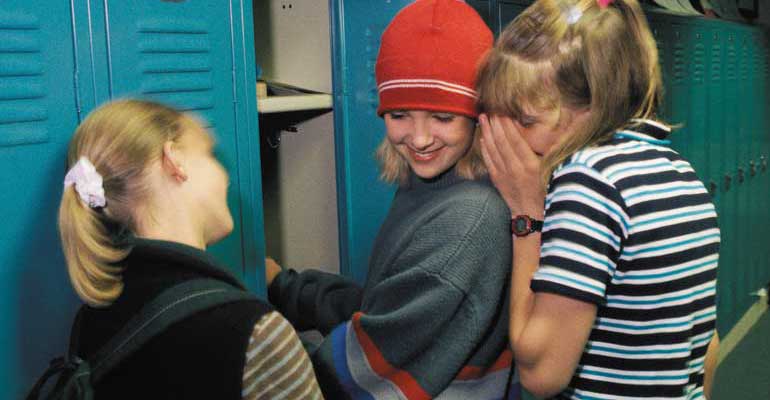Peer pressure is something our preteens face each day. By the time youngsters reach the fifth grade, the last thing they want is to be different. Adopted children may be particularly vulnerable to the influences of the group. They may already feel “different,” and thus may be overeager to conform. In fact, a child may even lie about being adopted so as not to be singled out.
Peer pressure is so strong at this age that, often, the group doesn’t even have to urge a classmate to join in a questionable activity. Rather, the preteen, searching for acceptance, will work hard to find out what the “group” expects and make every effort to join them.
What does peer pressure feel like?
When a group of 20 fifth and sixth graders were asked if they had ever felt pressured to do something that they knew was wrong, the response was resoundingly affirmative. These youngsters keenly described the emotional and physical pressures of conforming.
“I felt like someone was pushing against me. I couldn’t think. I had to make up my mind real fast, and I didn’t want to be left behind.”
“It felt like a big ache in my heart. I knew what I was doing was wrong.”
“I was really afraid that someone would call me chicken.”
“I was so mixed up. If I didn’t go along with my friends, I wouldn’t have them as friends anymore.”
What do kids say they feel pressured to do?
This same group of youngsters also discussed what types of things they felt compelled to do.
“I went to a place where I knew I wasn’t allowed.”
“I lied to my parents about where I went.”
“I cheated on a math test and helped a friend cheat because everyone liked him and I thought they would like me, too. It didn’t work.”
“I went into a store and stole something with three of my friends.”
“We smoked cigarettes.”
What can parents do?
- Look for teachable moments. Authors Dave and Gail Veerman suggest: “Without being judgmental, talk to your child about your values and how they compare to the group’s values. Then let her draw her own conclusions — don’t jump in with a lesson for the day.” When a child relates something about a friend who got in trouble because of peer pressure, you could ask, “What do you think you would have done?”
- Establish consequences for making wrong choices and don’t allow your child to blame the group. Don’t jump in and rescue her when her behavior has caused negative consequences. Blaming the group or someone else sends the message that she doesn’t need to take responsibility for her actions.
- Help your child to develop a “get-away plan.” Have conversations about “what-ifs,” and help him figure out how to walk away from situations that might lead to trouble. Reinforce his strength when he shares his feelings about right and wrong.


